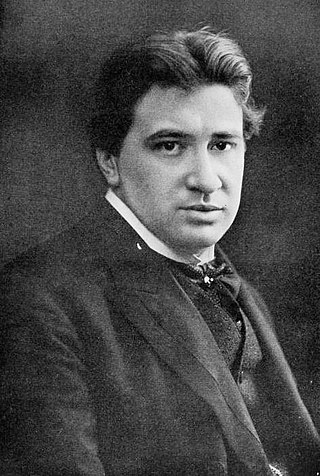
Le donne curiose is an opera in three acts by Ermanno Wolf-Ferrari to a text by Luigi Sugana after Carlo Goldoni's play of the same name.
Telemaco, ossia L'isola di Circe is an operatic dramma per musica in two acts by Christoph Willibald Gluck. The Italian libretto was written by Marco Coltellini after Carlo Sigismondo Capece's libretto for Scarlatti's 1718 opera Telemaco.
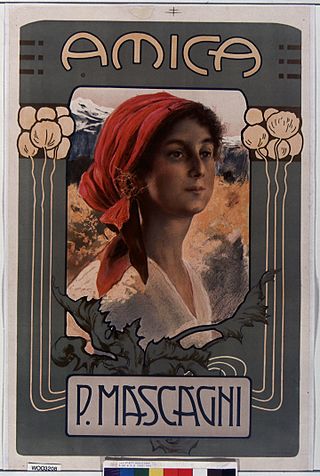
Amica is an opera in two acts by Pietro Mascagni, originally composed to a libretto by Paul Bérel. The only opera by Mascagni with a French libretto, it was an immediate success with both the audience and the critics on its opening night at the Théâtre du Casino in Monte-Carlo on 16 March 1905. Mascagni himself conducted the performance. The opera had its Italian premiere on 13 May 1905 at the Teatro Costanzi in Rome.
Dano Raffanti is an Italian tenor, particularly associated with the Italian baroque and bel canto repertory.
Euridice is an opera in a prologue and one act by the Italian composer Giulio Caccini. The libretto, by Ottavio Rinuccini, had already been set by Caccini's rival Jacopo Peri in 1600. Caccini's version of Euridice was first performed at the Pitti Palace, Florence, on 5 December 1602. Caccini hurriedly prepared the score for the press and published it six weeks before Peri's version appeared.
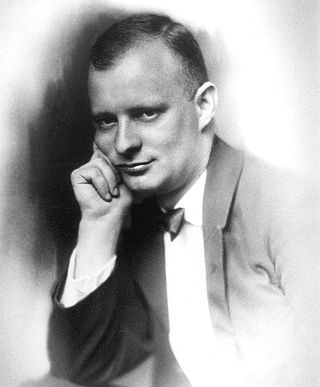
Neues vom Tage is a comic opera in three parts by Paul Hindemith, with a German libretto by Marcellus Schiffer.
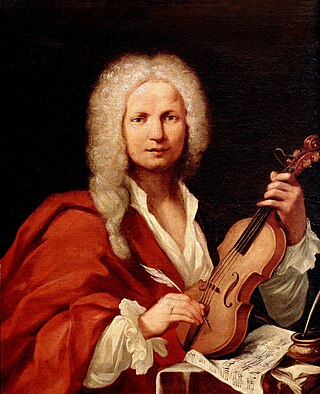
L'incoronazione di Dario is a dramma per musica by Antonio Vivaldi with an Italian libretto by Adriano Morselli. The opera was first performed at the Teatro Sant'Angelo in Venice on 23 January 1717.
Life with an Idiot is an opera by the Russian composer Alfred Schnittke to a Russian libretto by Viktor Erofeyev. Written as an allegory of oppression under the Soviet Union, the opera was first performed at Het Muziektheater, Amsterdam, on 13 April 1992.

Hélène is a poème lyrique or opera in one act by composer Camille Saint-Saëns. It is the first opera for which Saint-Saëns wrote his own French libretto, which is based on the classic story of Helen of Troy and Paris from Greek mythology. The opera premiered at the Opéra de Monte-Carlo in Monaco on 18 February 1904. Moderately successful, the opera enjoyed a handful of revivals up through 1919, after which it fell out of the performance repertoire. The work was resurrected in 2008 for its world premiere recording by the Australian music label Melba.

Antigone is an opera in three acts by Arthur Honegger to a French libretto by Jean Cocteau based on the tragedy Antigone by Sophocles. Honegger composed the opera between 1924 and 1927. It premiered on 28 December 1927 at the Théâtre Royal de la Monnaie with sets designed by Pablo Picasso and costumes by Coco Chanel.
Demofoonte is a dramma per musica or opera in 3 acts by composer Christoph Willibald Gluck. The work uses an Italian language libretto by Pietro Metastasio. The opera premiered on 6 January 1743 at the Teatro Regio Ducale in Milan.

Medea is an opera in three acts composed by Giovanni Pacini to a libretto by Benedetto Castiglia. It premiered on 28 November 1843 at the Teatro Carolino in Palermo, conducted by the composer with Geltrude Bortolotti in the title role. The libretto is based on the plays Medea by Euripides and Médée by Pierre Corneille.

Issé is an operatic pastorale héroïque by the French composer André Cardinal Destouches. Initially it was in three acts. The definitive revised version consists of a prologue and five acts. The libretto was by Antoine Houdar de la Motte. Although Destouches was only 25 at the time of its premiere, it is considered his best score.

Semiramide riconosciuta is an Italian opera with serious action, or dramma per musica, by Nicola Porpora, set to a libretto by Metastasio with some textual changes, possibly by Domenico Lalli. The opera was written for some of the finest contemporary singers, and includes a technically demanding series of da capo arias.
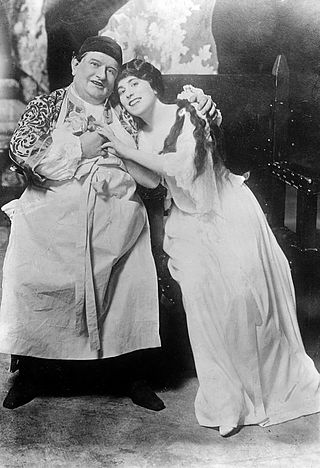
L'amore medico is an opera in two acts by composer Ermanno Wolf-Ferrari. Based on Molière's comedy L'Amour médecin, the work uses an Italian language libretto by Enrico Golisciani. It premiered in a German version by Richard Batka on 4 December 1913 at the Hoftheater in Dresden under the title Der Liebhaber als Arzt.
Der Roland von Berlin is an opera in four acts by composer Ruggero Leoncavallo. The work uses a German-language libretto by Leoncavallo which is based on Willibald Alexis's 1840 historical novel of the same name. The opera premiered at the Königliches Opernhaus in Berlin on 13 December 1904. Its premiere in Italy was given at the Teatro di San Carlo in Naples the following month where it was sung in Italian with the title Rolando.
Il trionfo di Clelia, Wq. 31, is an opera composed by Christoph Willibald Gluck. It takes the form of a dramma per musica in three acts. The Italian-language libretto by Pietro Metastasio is based on several semi-legendary narratives concerning the founding of the Roman Republic. The opera premiered on 14 May 1763 at the Teatro Comunale di Bologna. Although rarely performed since then, it was revived in London in 2012 at the Royal Opera House's Linbury Studio.

Maria Carbone was an Italian operatic soprano. She created the lead female roles in two of Gian Francesco Malipiero's operas: the title role in Ecuba and Cleopatra in Antonio e Cleopatra.
Nitocri is an opera in two acts composed by Saverio Mercadante to libretto by Apostolo Zeno adapted by Lodovico Piossasco Feys. The libretto is a fictionalised account of the Egyptian queen Nitocris. The opera premiered at the Teatro Regio in Turin on 26 December 1824.











